

Turns out the Old Farmer’s Almanac was right. The summer here in Rhode Island and southeastern Massachusetts has been hotter than normal.
That means keeping your home cool and comfortable can be more costly.
But your air conditioning bills don’t have to break the bank! We have five ways you can save on energy costs without having to sacrifice any comfort.
An annual maintenance tune-up can save you money in more than one way. First, a well-maintained A/C system runs at its peak efficiency, meaning it’s using the least amount of energy possible to keep your home cool.
The tune-up gives our service technicians an opportunity to spot and fix small problems that can impact your air conditioning’s efficiency as well as potentially causing breakdowns. Regular professional maintenance may also help keep your air conditioning system’s warranty in effect.
If your home’s air conditioning system has not had its annual tune-up this year, don’t waste any more time! Contact us today to schedule it.
The United States Department of Energy offers some guidance on how to set and program your thermostat for more efficient cooling.
When you’re home and awake, set the air conditioning to 78°F. That allows you to be cooler without being too cold and using too much energy.
Increase the air conditioner setting to 85˚ during the hours you’re out of the house.
When you increase the thermostat temperature by 7˚ to 10˚ for eight hours a day, you can save 10% on your cooling costs!
If you don’t have a programmable thermostat, they’re affordable and available at home improvement stores.
A dirty filter means your air conditioning has to work harder. Check your filter once a month and replace as needed. You can lower your cooling costs by up to 15%!
Another benefit is that less dust will get into your cooling system, which can create more wear on the equipment. Changing the filter can help the A/C system last longer.
This applies both indoors and out.
Indoors, make sure vents bringing the cooled air into your rooms aren’t obstructed by curtains, furniture, or other objects. Blocked or obstructed vents force the air conditioning to cycle on more often, adding to your energy costs.
Outside, make sure your condenser has at least three feet of clear space around it. Trim back shrubs or other plants within that space. And while you’re at it, clear away any debris like leaves, twigs, and grass clippings.
You may be thinking, “Why do I need fans? That’s what the A/C is for!” Ceiling fans set at counterclockwise push air downward, keeping the cooled air down where it belongs. Also, circulated air feels cooler, so you won’t have to set as low a temperature to be comfortable.
Contact us for all your home’s air conditioning needs!
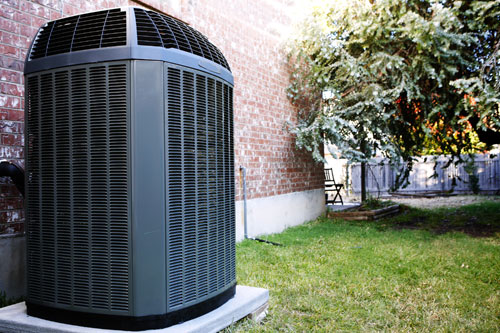
The weather’s been scorching hot in recent weeks here in Rhode Island and southeastern Massachusetts.
That means your home’s air conditioning system has been getting a workout but not getting much of a break as you need it to keep your home cool and comfortable.
But if you’re noticing that your A/C is running, but your home isn’t getting cool, that’s a problem. But before you contact Wesco Oil to schedule a service call, the cause may be something simple you can find with a little detective work, and maybe even fix yourself, saving you money and getting your home cool again faster!
We’ve put together four troubleshoots you can do. Remember, if you’re not sure about anything, don’t hesitate to contact us.
While you’re checking out your air conditioning system indoors and out, you may spot something that may lead you to the cause. These issues need to be fixed by trained, experienced HVAC service technicians like ours. Contact us and we’ll be on the job!
Refrigerant leak. If you notice ice buildup on the refrigerant line in your outdoor unit, or a hissing/bubbling noise neat the unit, this is the likely culprit. If the unit is older and uses R-22 refrigerant, you really want to consider replacing your air conditioning, as R-22 can no longer be produced in or imported to the United States. Prices for it are already soaring and will only continue to go higher.
Ductwork leak. The easiest way to see if this might be the case is to do a walkthrough of your house. Are there some rooms that aren’t getting cool while others are? You may also notice your energy bills going up because the A/C has to work harder to get the cool air around your home with leaks in the ductwork.
Contact us for air conditioning repair and maintenance.
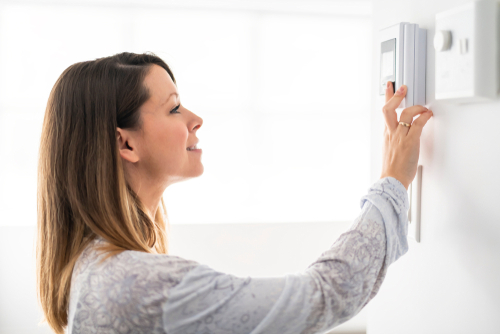
Have you been outside enjoying the summer weather?
If so, you probably have noticed that it’s been hotter than normal here in Rhode Island and southeastern Massachusetts.
With a summer like this, you are appreciating your home’s air conditioning even more. But you’re probably not appreciating the probable increase in energy costs associated with it.
We’re here to help you with that, with some suggestions on ways you can reduce your energy costs without having to sacrifice comfort.
Setting your thermostat to 78˚ for home cooling is a common suggestion, and it’s part of a plan to help lower your energy costs.
The guidance comes from the United States Department of Energy . When you’re home and awake, set the air conditioning to 78°F. That allows you to be cooler without being too cold and using too much energy.
Increase the air conditioner setting to 85˚ during the hours you’re out of the house.
When you increase the thermostat temperature on your home’s air conditioning system by 7˚ to 10˚ for eight hours a day, you can save 10% on your cooling costs. When you consider how much of your summer’s energy bills are related to air conditioning, you’ll see how big those savings are!
Even though we’re staying home more this summer, we’re still pretty busy. That means remembering to adjust your thermostat doesn’t always happen.
A programmable thermostat is a great investment in controlling your energy costs. Once you program it, your work is done! When you head out for the day, your A/C’s temperature setting will increase. Before you come home, the air conditioning can be programmed to start cooling your home to your desired temperature.
You can also program your thermostat for when you go away for a few days, a week, or longer. Your home will be kept at a safe temperature, and you program it so that it will be cool by the time you get home.
There are even smart thermostats, that you can use to control and monitor your home’s HVAC system from your smartphone or tablet, wherever you can get a WiFi or cellular connection.
Ready to upgrade your home’s air conditioning? Contact us for an estimate!
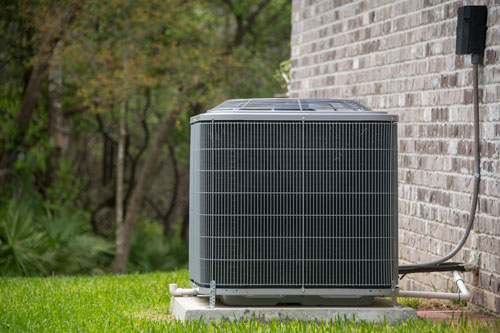
With summer in full swing here in Rhode Island and southeastern Massachusetts, your home’s air conditioning has been getting a workout.
But all of that usage can mean your HVAC system is getting overworked. If your A/C system hasn’t had its annual tune-up, contact us now and get it done to help prevent problems.
But even with routine maintenance, sometimes things can go wrong. That’s especially true if your HVAC system is more than 10 years old. If yours is, it may be time to upgrade to a new, energy-efficient system. Our equipment experts can help with that, and may be able to help you get a rebate on your new system!
Whatever your situation, there are some issues you should keep an eye out for. We’ve put together a list.
This problem has more than one possible cause. Check the unit and make sure plants and shrubs aren’t close to the unit and trapping heat inside, which can not only cause poor air flow and inefficiency, it can cause your system to overheat.
The other possible cause is a dirty intake air filter, which can also mean dirty coils. When you run the A/C more, the filter gets dirty faster. During the summer, replace your filter more often, preferably every month. That’s especially true if you have pets.
Over time, the refrigerant lines and coils in your A/C system can develop tiny leaks. That allows refrigerant to escape. If it reaches the point of a low refrigerant charge, the air conditioning has to work harder to get your home to the set temperature. You’ll see higher energy costs and have a greater risk of a breakdown.
If you notice your home isn’t staying cool or that the air conditioning is running more often for longer periods, contact us. If it’s a low refrigerant job, a professional HVAC service technicians is required for fixing it.
Your condensate drain line may get blocked by dirt, debris (like grass clippings), or insects. Fortunately, this problem reveals itself fairly quickly with water leakage near the A/C unit. If you see this, use a wet-dry vacuum to try and remove the clog. Contact us if that doesn’t resolve the problem.
Keep your HVAC system in tip-top shape. Contact us to schedule your tune-up!
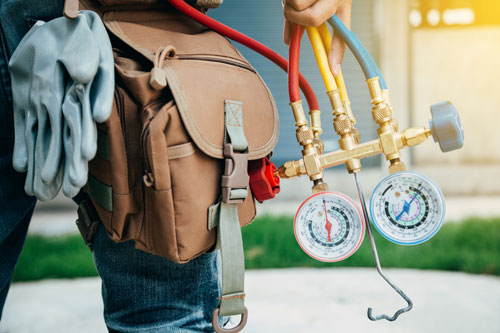
Replacing your home’s HVAC equipment can be a trying time, whether your equipment failed or you chose to upgrade.
But there is some good news. Your new equipment will not only be more reliable, it will be much more energy-efficient, so you’ll start seeing energy savings from the moment it’s installed.
Your new equipment is a major investment in your home and your family’s comfort. This is not the time to call “some guy” your neighbor’s visiting brother told you about to do the installation.
Improperly installed HVAC equipment can lead to non-compliance with building codes and other regulations, reduced efficiency and performance, and danger to you and your loved ones by the increased risk of fire or carbon monoxide buildup.
What else could go wrong if your installation isn’t done right? Here are some examples.
Right-sizing an HVAC system is vital to getting the most from your new installation: buy equipment that’s too small or too large and you’ll wear it out before its time (a unit that’s too small will overwork; a unit that’s too large will constantly turn on and off, or cycle, which over-taxes the compressor and fan controls).
There’s so much more to right-sizing besides volume of your house, as many less experienced installers would lead you to believe. Other factors that must be taken into account include the climate, the style of your home, the number of windows you have, the amount of insulation your home has, and the amount of shade your house is exposed to.
When an air conditioning unit is undercharged, it may develop frost or ice on its cooling coils. That will cause not only poor cooling performance and but a worn-out compressor motor – a very expensive repair. An overcharged system will cool effectively, but not efficiently. That’s a problem you won’t notice until your unexpectedly high energy bills arrive.
If there’s excessive refrigerant pressure, coolant could be forced into the compressor motor. That leads to costly HVAC repairs, or worse, a permanent breakdown of your air conditioning system.
According to the Comfort Institute, you could be losing more than 11% of your heated and cooled air because of leaky ductwork. And since that lost air is in places you aren’t, like your basement or spaces between your walls, you have to spend more on energy costs to keep your home comfortable. A proper, professional HVAC equipment installation includes inspection of the ductwork so repairs can be done and help your new equipment run at peak efficiency.
You need an HVAC contractor with the knowledge and experience to install your new HVAC equipment safely and properly, like the equipment professionals at Wesco Oil!
Contact us for expert, safe HVAC installation and service!
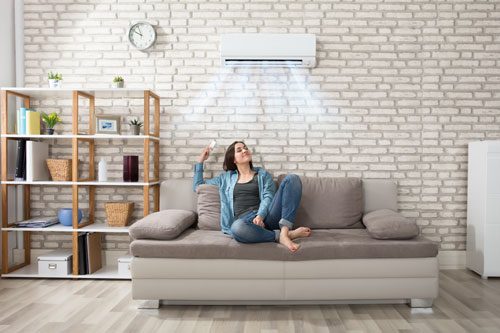 With the coming July 4th holiday, summer is well underway!
With the coming July 4th holiday, summer is well underway!
And the summer of 2020 is forecast to be hotter than normal. Are you concerned about your home’s air conditioning being up to snuff?
New air conditioning can be a big investment, which can be a daunting thought. So, we’ve put together some things you need to think about so you know you’re making the right decision.
If you’ve been diligent about keeping your A/C well maintained with annual professional tune-ups, it can last around 15 years. But once it hits 10 years of age, you can expect dwindling efficiency and more frequent and more expensive repairs. If your home’s air conditioning system is 10 years old or older, start planning your upgrade now.
Is your air conditioning system breaking down more frequently? Are A/C repairs getting more extensive, and more expensive? Think about how much you’re having to shell out for repairs, and how it’s only going to get worse from here on out. If you’re facing repair costs that are higher than 50% of what a new air conditioning system would costs, that’s a sign that it’s time to replace rather than keep repairing.
If you’re starting to see your energy costs get higher when you’re using air conditioning, it’s a sign that the A/C is no longer operating efficiently. A new air conditioning system will begin paying for itself from the moment you turn it on with better efficiency and lower energy costs.
R22 (also known as Freon) has been being phased out for several years. On Jan. 1, 2020, the manufacture and importing of R22 became illegal in the United States. Without more R22, the laws of supply and demand are coming into play. It will be harder to get R22 for your air conditioning system, and that will be reflected with higher prices. Factor that cost into whether you should upgrade to a new A/C.
When you’re looking to upgrade your home’s air conditioning, contact us for the best products, installation, and service!
 With the arrival of summer here in Rhode Island and southeastern Massachusetts, you might be worried about what air conditioning can do to your energy bills.
With the arrival of summer here in Rhode Island and southeastern Massachusetts, you might be worried about what air conditioning can do to your energy bills.
Good news: Saving on your energy costs this summer doesn’t have to involve drastic changes. You can still keep just as cool and comfortable as you like.
The best way to save on energy just requires you to remember to do one simple thing: turning your thermostat up 7˚ to 10˚ for eight hours a day during cooling season (and down the same amount for eight hours a day during heating season). The U.S. Department of Energy reports that this can help you save up to 10% on your cooling and heating costs. And when you consider cooling and heating make up about 50% of what you spend on energy each year, you see just how big those savings can be!
Use this simple guide to get started on savings.
Summer months:
Winter months:
Yeah, programmable thermostats and the high-tech smart thermostats cost a little more than a standard thermostat. But you’ll get that investment back and then some because it will adjust your thermostat for you. If you have the unfortunate habit of forgetting to turn off the A/C while you’re out of the house, having a set-it-and-forget-it programmable thermostat will do it for you.
Smart thermostats take that several steps further because you can control and monitor your home’s HVAC system through your smartphone or tablet!
Here’s how you use a programmable or smart thermostat for enhanced energy savings.
Contact us for help in keeping your cooling costs down this summer!
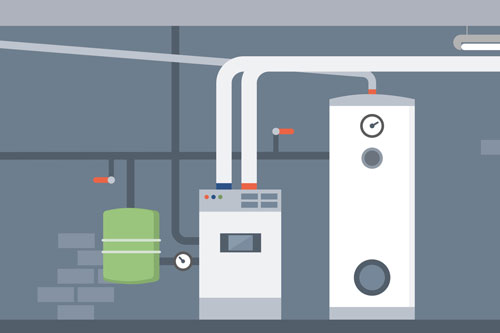 Summer is almost here! And while your air conditioner may be first on your mind right now, you may also be thinking about your furnace a bit. Specifically, you may be wondering if you should turn it off for the summer season.
Summer is almost here! And while your air conditioner may be first on your mind right now, you may also be thinking about your furnace a bit. Specifically, you may be wondering if you should turn it off for the summer season.
We’ve put together some information and things to consider to help you figure out what to do.
Many people think that by turning their thermostat to “Cool” they’ve turned their furnace off. Not quite. You’ve stopped the furnace from running, but it’s still on. If your furnace is 15 years old or older, it has a pilot light. That pilot light is still on, which means your furnace is using energy you have to pay for.
So often, people use the term “furnace” to describe any type of home heating system. All furnaces are heating systems but not all heating systems are furnaces.
A furnace uses forced air to heat your home. Boilers heat your home using water.
If you have vents, you have a furnace. If you have radiators or baseboard heating, you have a boiler.
If you have a boiler, DO NOT turn off the pilot light! The metal in a boiler shrinks when the unit gets cold. That can cause leaks and damage in your heating system.
Contact us for the best equipment service in Rhode Island and southeastern Massachusetts!
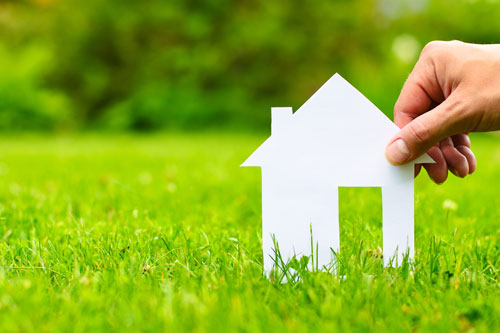
We all know that an empty oil tank means bad news in the winter because now you have no heat. But many people don’t realize that having an empty heating oil storage tank in the summer can also cause problems—although for a totally different reason: condensation forms inside the empty space of your tank.
Condensation is a common problem for tanks during the summer. Hot, humid days and cooler nights create the right atmosphere for condensation buildup to accelerate inside your tank. And if your tank is aboveground, outdoors and in an unshaded area, it’s especially prone to condensation.
That’s why it’s best to keep your tank at least half-full (preferably more) during the warm months.
After water forms on the bare walls on the empty area of the tank, it drips down and sinks to the bottom of the tank because water is denser than heating oil. There, it becomes an ideal environment for bacteria and other microorganisms.
Over time, these organisms die off and turn into sediment. One problem is that sediment, commonly referred to as sludge, can get into your fuel lines and clog them up. This will cause your heating system to shut down.
So here’s the bottom line: keeping your tank full during the summer prolongs its life. That’s because the same condensation that results in sludge can also corrode your tank from the inside out – a big problem that could be difficult to see coming and costly to resolve.
Knowing you’re protecting your investment in a home heating oil storage tank should give you plenty of motivation to get a summer fill. But there are other benefits to filling your oil tank now, instead of waiting for the cold weather to return.
Oil storage tanks can last for many years, but they eventually do give out. Life spans vary depending on the humidity, the thickness of the steel and more. And when tanks do fail, it’s hard to see it coming because they generally erode from the inside out.
To avoid the headaches that will come if your tank fails, it’s a good idea to check out the new aboveground tank options that are available. Today’s fuel storage tanks are light-years ahead of old models because they are virtually leak-proof and have features that include:
Here’s another great feature: Modern aboveground tanks generally can be installed in small or unusually shaped spaces.
Speak to us about current rebate opportunities. For instance, the Oil Heat Institute of Rhode Island Upgrade & Save program is offering a $250 rebate for the installation of an aboveground oil tank to replace either an aboveground or underground oil tank. Other rebates are also available for both our Rhode Island and Massachusetts customers. Read more here.
Since 1984, Wesco Oil has been driven by one goal: to be a dependable heating company that provides the best service for our customers in Rhode Island and southeastern Massachusetts.
We not only deliver the oil that keeps your home warm. We also install, maintain and repair your home’s heating systems, from boilers to furnaces to water heaters. Become a customer today!
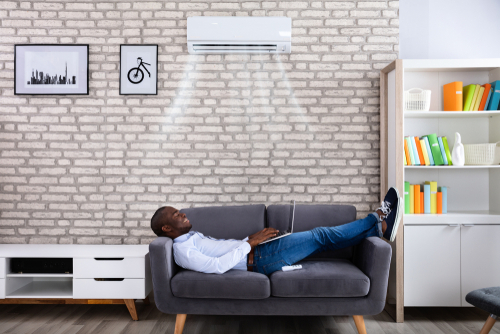 Summer is getting closer here in Rhode Island and southeastern Massachusetts.
Summer is getting closer here in Rhode Island and southeastern Massachusetts.
Is your home’s air conditioning system ready to run efficiently? An A/C running at its best efficiency not only saves you money in energy costs, it helps prevent breakdowns and expensive repairs, and also can extend the life expectancy of your air conditioning system.
We’ve put together a few tips so you can get the most cool comfort from your air conditioning system this summer.
Your air conditioning system should get a tune-up once a year. Wesco Oil’s certified, trained, and experienced service technicians will thoroughly inspect, clean, and tune up your A/C system. The tune-up also gives them an opportunity to discover and fix small problems before they lead to a breakdown.
A programmable thermostat, used properly, can save you 10% on your cooling costs this summer! You can program it to set the A/C to a higher temperature when you’re away during the day. That’s how you uses less energy and save money without sacrificing comfort! There are also smart thermostats, which you can program and control from your smartphone or tablet wherever you have a signal. Some even let you know if something is amiss with the A/C.
Dirty air filters make your air conditioning system run less efficiently, and can even damage it. Check the filters regularly. Most average-sized homes with no pets can go no more than three months before changing the filters. If there are pets in your home, or if you or someone in your home has allergies or a respiratory condition such as asthma or COPD, you will have to change it once a month.
There comes a time when maintenance and repairs are just throwing away money. When that time comes, Wesco Oil can help you upgrade to a new high-efficiency air conditioner. You’ll get a return on your investment from Day One with lower energy costs. And we may be able to help you get a rebate on your new A/C!
Contact us for air conditioning installation, maintenance, and repairs!